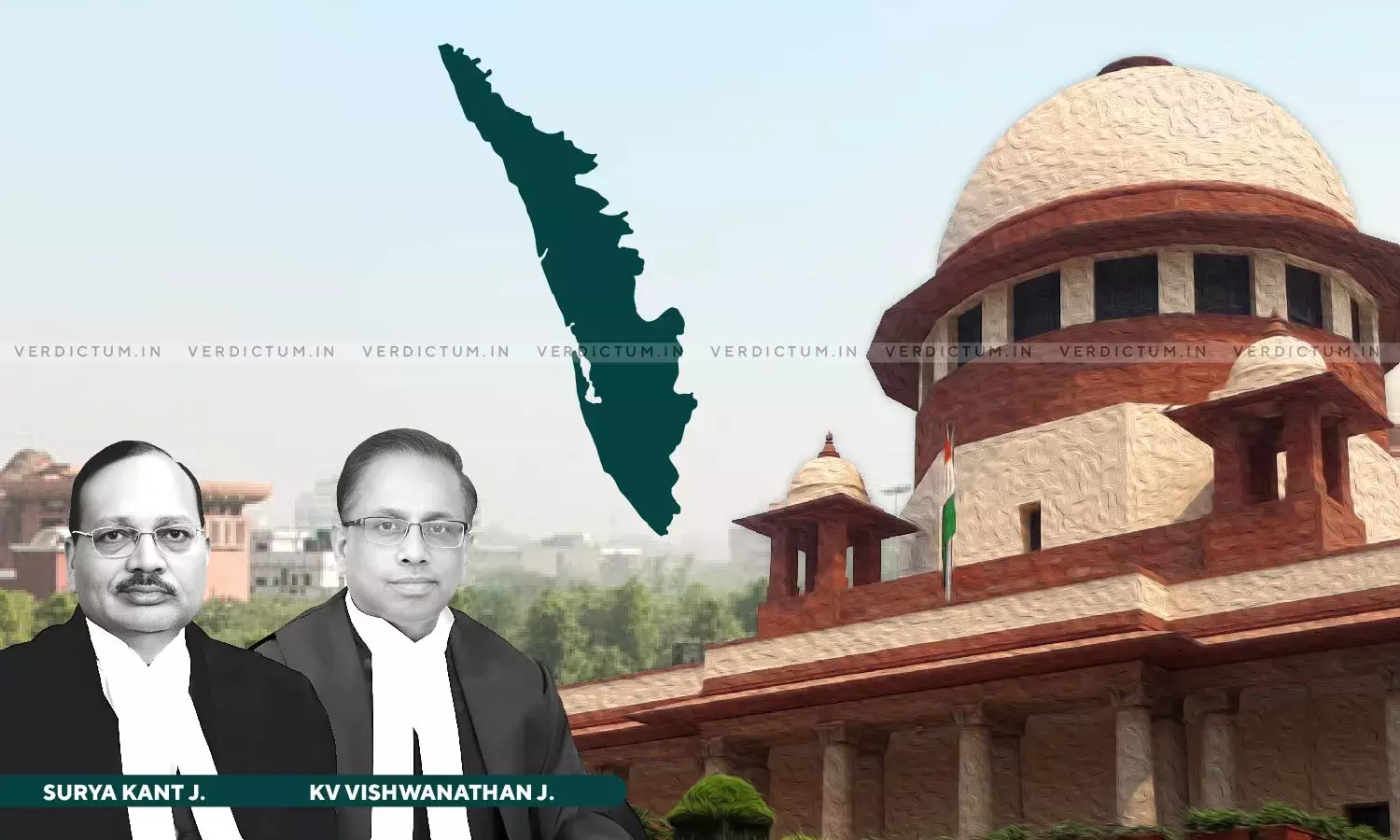Plaintiff Has To Establish A Stronger Case For Mandatory Injunction: SC Explains 'Triple Test' For Injunction Orders

The Supreme Court said that Courts have to be relatively more cautious in granting mandatory injunction as compared to prohibitory injunction.
In its order refusing interim relief to State of Kerala in its Suit challenging the borrowing limits imposed by the Central Government, the Supreme Court explained the Triple Test for granting Injunction Orders.
The Triple Test is (a) A ‘Prima facie case’, which necessitates that as per the material placed on record, the plaintiff is likely to succeed in the final determination of the case; (b) ‘Balance of convenience’, such that the prejudice likely to be caused to the plaintiff due to rejection of the interim relief will be higher than the inconvenience that the defendant may face if the relief is so granted; and (c) ‘Irreparable injury’, which means that if the relief is not granted, the plaintiff will face an irreversible injury that cannot be compensated in monetary terms.
The Court denied Kerala's prayer for an interim injunction against the Union's Net Borrowing Ceiling, noting the state's failure to demonstrate fiscal space for borrowing post-adjustment of the previous year's over-borrowings.
The State had raised substantive questions of constitutional interpretation of Article 293 pertaining to State borrowing after the Union of India imposed a ‘Net Borrowing Ceiling’ to restrict the borrowing of the State.
“On a comparative evaluation of the submissions, it seems to us that the mischief that is likely to ensue in the event of granting the interim relief, will be far greater than rejecting the same,” the Court held.
Justice Surya Kant and Justice K.V. Vishwanathan observed, “ If we grant the interim injunction and the suit is eventually dismissed, turning back the adverse effects on the entire nation at such a large scale would be nearly impossible. Au contraire, if the interim relief is declined at this stage and the Plaintiff - State succeeds subsequently in the final outcome of the suit, it can still pay the pending dues, may be with some added burden, which can be suitably passed on the judgment - debtor. The balance of convenience, thus, clearly lies in favour of the Defendant – Union of India.”
Sr. Advocate Kapil Sibal and AG K. Gopalakrishna Kurup represented the plaintiff, while Attorney General for India R Venkatramani and ASG N Venkatraman appeared for the defendant.
The State of Kerala sought a mandatory injunction against the imposition of a ‘Net Borrowing Ceiling’ by the Union and to restore the borrowing capacity that existed before such imposition. The State had argued that the Union did not have the power to regulate all the State borrowings and that it had already under-utilized its borrowing space in previous fiscal years.
Kerala's bid for additional borrowing was contested by the Union on the grounds that the Central Government had the power to regulate all the borrowings of the State to maintain the fiscal health of the country since the management of public finance was a national issue.
The State also argued for its entitlement to borrow up to the maximum permissible fiscal deficit, citing recommendations of the 15th Finance Commission. However, the Union countered with evidence of Kerala's alleged over-borrowing in previous years, leading to deductions in the borrowing limit for subsequent years.
The Supreme Court ruled against the grant of interim relief holding that the State had failed to establish a prima facie case, balance of convenience, and irreparable injury - the golden principle of the “Triple-Test” for granting injunctions.
The Court distinguished between the standard of scrutiny in applying the principle for ‘prohibitory’ and ‘mandatory’ injunctions. “Prohibitory injunctions vary from mandatory injunctions in terms of the nature of relief that is sought. While the former seeks to restrain the defendant from doing something, the latter compels the defendant to take a positive step,” the Court explained.
While prohibitory injunctions restrict future actions, mandatory injunctions compel the parties to take an active step and undo past actions. In the present case, Kerala sought a mandatory injunction to undo the imposition of the borrowing ceiling.
The Court explained that it was the “responsibility of the government to ensure prudence in fiscal management and fiscal stability by progressive elimination of revenue deficit and sustainable debt management consistent with fiscal stability” as enshrined under the Kerala Fiscal Responsibility Act, 2003.
Moreover, the Court found merit in the Union’s submission that “after inclusion of off budget borrowing for F.Y. 2022-23 and adjustments for over-borrowing of past years, the State has no unutilized fiscal space and that the State has over-utilized its fiscal space.”
The Court attributed the State's financial hardship to its own financial mismanagement while holding that “if we were to issue interim mandatory injunction in such like cases, it might set a bad precedent in law that would enable the States to flout fiscal policies and still successfully claim additional borrowings.”
Accordingly, the Supreme Court disposed of the I.A.
Cause Title: State of Kerala v. Union of India (Neutral Citation: 2024 INSC 253)
Appearance:
Plaintiff: Sr. Advocate Kapil Sibal; AG K. Gopalakrishna Kurup; AOR C. K. Sasi; Advocates Meena K Poulose, Anusha Nagarajan, Aparajita Jamwal, Manisha Singh, Rishabh Parikh, Sumedha Sarkar and Rupali Samuel
Defendant: Attorney General R Venkatramani; ASG N Venkatraman; AOR Raj Bahadur Yadav; Advocates Sonali Jain, Chitvan Singhal, Raman Yadav, Kartikay Aggarwal, Abhishek Kumar Pandey, Ameyvikrama Thanvi and Mukesh Kumar Singh

